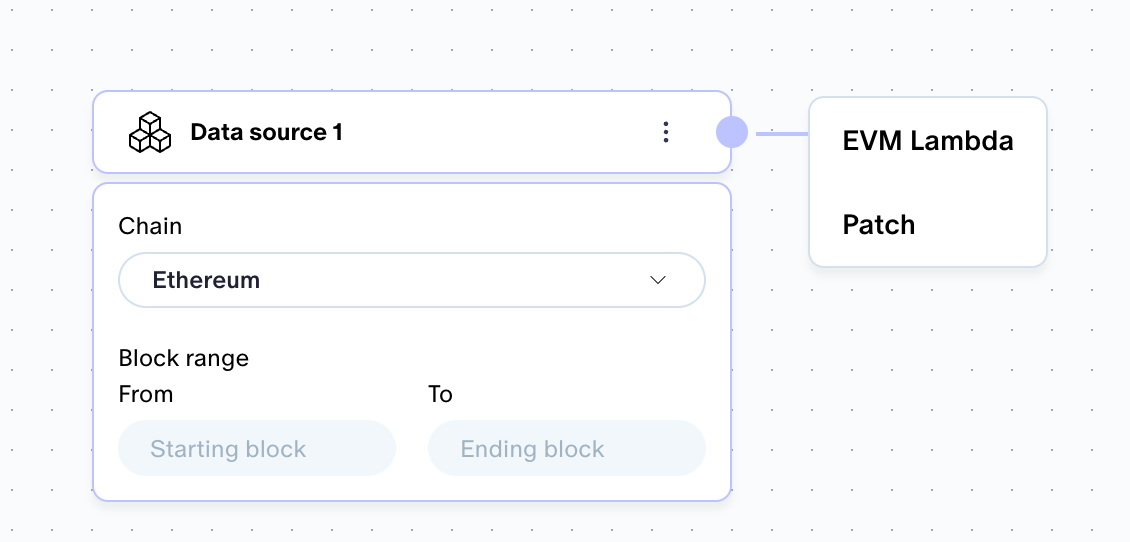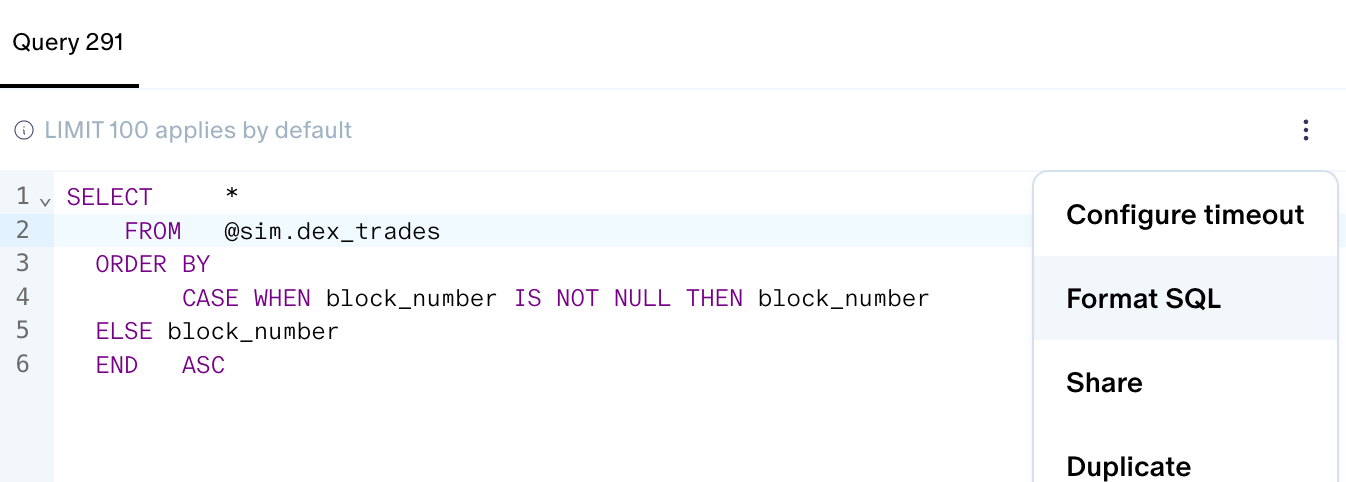Easy sharing, component adding, and more
New features
-
Public canvases and shared queries: Want to share your canvas or a query with someone outside your org? Perhaps they haven't even signed up for sim.io? Just give them a canvas URL or use the share query feature. Anyone can open any canvas link and view its contents in read-only. Anyone can open a shared query link and run that query. The ability to mark a canvas as private, restricting access to org members, is coming soon for our paid tiers.
-
Add new components from handles of existing components: Adding all the new components you need to your canvas using the left sidebar is so yesterday... Instead, click on either handle of any existing component and you'll see a menu of the components that can be connected downstream (or upstream, for the left handle) of the existing component. Click your choice and it's added and automatically connected to the existing node.

-
Format SQL: Your SQL is perfect, but your colleague... well... it's not great... Fortunately, there's now a
Format SQLfeature within the hamburger menu of the query editor.
-
New API templates and core tables
- Uniswap V3 on-chain prices (X thread)
- Basenames data (related X threads: 1, 2, 3)
- contract_deployments
Coming soon
We're tantalizingly close to solving some major annoyances for users:
- Table name editing with conflict resolution: You realized there was something you want to improve in your old table but you're using it in production.
- Clearing schemas and persistences: You wrote some bad/incomplete data into a schema and persistence. There's no shame. We've all done it. But to reset the board, as punishment for your sins, you're going to have to duplicate the existing schema and persistence components as well as the execution edge. Then you delete the originals, reconnect the duplicates, and restart the executions. Don't forget to fix the names! It sucks, especially on bigger canvases with many components flowing into the same persistences. We've decided that the punishment doesn't fit the crime. Instead, we'll give you an option to simply clear the existing schemas and persistences.
- Complex type support: Sometimes you might want to emit a struct to a schema and have it show up as a JSON in your table. Soon you'll be able to!
- Cross-lambda shared code: Ever found yourself declaring the same util functions in ten different lambdas of the same canvas. Then you have an idea to improve it and you have to update ten places? Solution coming soon.